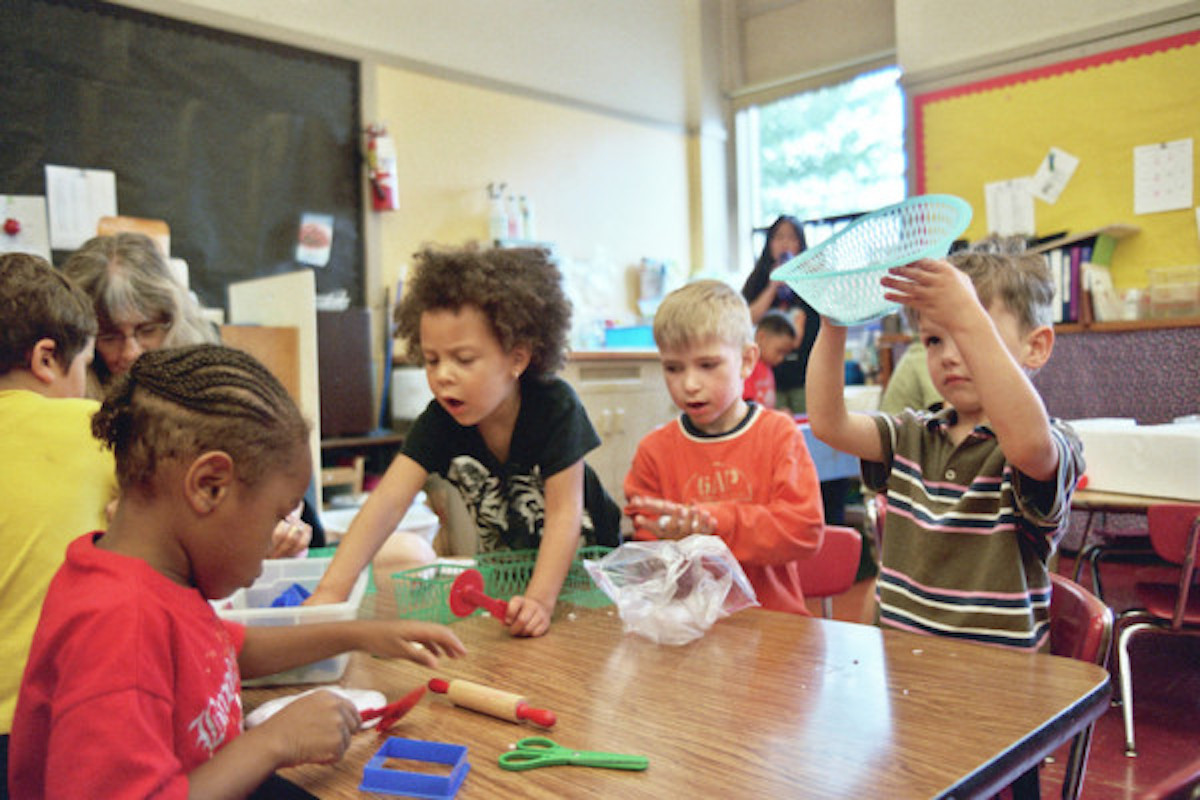
Playtime equals learning time for young children
By Natalie Orenstein
With elementary schools nationwide adapting their curricula to jibe with the Common Core, some parents and teachers argue that the littlest learners should be better prepared for the academic standards they will soon be required to meet. Others counter that increasingly structured schooling makes it even more important for younger kids to have some time to play, explore and get messy.
Earlier this month, some educators told the Pittsburgh Post-Gazette that this debate is misguided. They argued that those who pit play against formal education create a false dichotomy—an either/or that does not, or at least should not, exist.
When preschool teachers talk about “play,” they are talking about behavior that spurs neurological and social development, said Roberta Schomburg, early childhood education professor at Carlow University. “Children are learning about math every day when they play and they’re probably learning about it in a more solid way than if they were manipulating symbols,” she said.
One obvious example is playing with blocks, where kids fit geometric shapes and angles together and experiment with size and quantity. But in all kinds of play, kids are counting, solving problems and dividing toys among friends.
Psychologist Alison Gopnik has studied how imaginary play helps young children explore real-life situations and cultivate social skills and empathy. A study from her lab at the University of California, Berkeley, also suggests that playing “pretend” often engages kids in scientific thinking.
Most preschools strike a balance where activities are structured, but they are structured so that students have opportunities to explore and discover. Carol Barone-Martin, executive director of early childhood education for Pittsburgh Public Schools, told the Post-Gazette that her curricula are deliberately designed “so children can play, but they can play in a way that develops certain outcomes.”
Other teachers make a conscious distinction between unfettered free time and structured academics but make sure to offer both. When kindergarten became a full-day affair in Bellingham, Wash., the district required all classes to include 60 to 90 minutes of play per day.
Writing in USA Today in 2009, Lisa Guernsey, director of the early education initiative at the New America Foundation, agreed that play and education are not diametrically opposed. “We have to find ways to relieve the pressure on kindergarten without reaching back futilely to the early 20th century,” she wrote, “when expectations were lower and the urban and rural poor were virtually ignored.”
Guernsey suggested that teachers need more support and training to help blend play with effective learning. She also emphasized the need to make preschool more affordable for working families and to build a “bridge between preschool and kindergarten” to allow the experience to be better integrated for teachers and their students. It is advice that needs to be heeded today.
In Pittsburgh, out-of-school organizations have joined forces to preserve play in the daily lives of our city’s children. Distressed by the decline of free play nationwide, the city, the county, arts and health nonprofits and foundations formed the Playful Pittsburgh Collaborative to support one another in pressing for more opportunities for play.
Neuroscientists and educators have spoken: play is critical in younger years. But a focus on play does not necessitate the exclusion of academic learning. Instead, play can facilitate learning, whether kids are let loose in a costume box or on a playground or guided by thoughtful instructors in semistructured settings. Presenting play as the antithesis to academics can only hinder us from creating the best environments for learning.
This article originally appeared in Remake Learning, one of Kidsburgh’s community partners. Remake Learning reports on the people, organizations and ideas shaping the future of teaching and learning in the greater Pittsburgh region.
Featured photo: Young children learning through play, Photo by Sarah Gilbert via Remake Learning